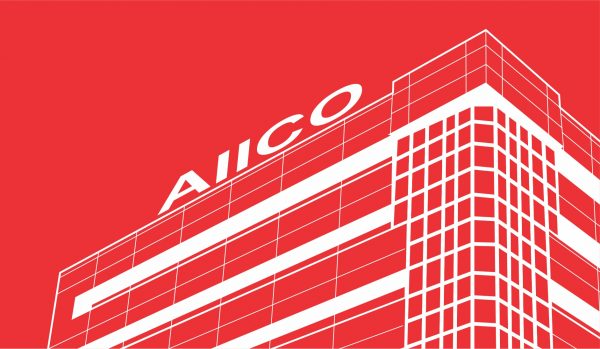
Insurance plays a critical role in the economic and social development of any nation. It provides a safety net for individuals, businesses, and governments, mitigating risks and ensuring financial stability in the face of unforeseen events. In Nigeria, the insurance sector is regulated by the National Insurance Commission (NAICOM), which oversees the implementation of compulsory insurance policies. Compulsory insurance refers to insurance policies that are mandated by law, requiring individuals or organizations to obtain specific types of coverage. This article provides a comprehensive overview of compulsory insurance in Nigeria, its legal framework, types, benefits, challenges, and the way forward.
Legal Framework for Compulsory Insurance in Nigeria
The concept of compulsory insurance in Nigeria is rooted in various laws and regulations enacted to protect citizens, businesses, and the economy. The primary legislation governing compulsory insurance includes:
- Insurance Act 2003: This is the principal law regulating insurance practices in Nigeria. It outlines the types of compulsory insurance and the penalties for non-compliance.
- Motor Vehicles (Third Party Insurance) Act: This mandates third-party motor insurance for all vehicle owners.
- Workmen’s Compensation Act 2010: This requires employers to provide insurance coverage for employees in case of work-related injuries, disabilities, or death.
- Pension Reform Act 2014: While primarily focused on pensions, this act also emphasizes the need for group life insurance for employees.
- Buildings Under Construction Insurance: This is mandated by the Lagos State Building Control Agency (LASBCA) and other state regulations to ensure safety and financial protection during construction projects.
These laws are enforced by NAICOM, which collaborates with other government agencies to ensure compliance.
Types of Compulsory Insurance in Nigeria
In Nigeria, the following types of insurance are compulsory:
- Third-Party Motor Insurance:
- This is the most widely known compulsory insurance in Nigeria. It covers liability for damage or injury caused to a third party by the insured vehicle. The law requires all vehicle owners to have at least third-party insurance, which is a prerequisite for vehicle registration and renewal.
- Employers’ Liability (Workmen’s Compensation) Insurance:
- Employers are required to provide insurance coverage for their employees in the event of work-related injuries, disabilities, or death. This ensures that employees are compensated and protected, promoting workplace safety and welfare.
- Group Life Insurance:
- The Pension Reform Act mandates employers with three or more employees to provide group life insurance. This policy covers the death of an employee while in service, ensuring that the deceased’s beneficiaries receive financial support.
- Buildings Under Construction Insurance:
- This policy is compulsory for buildings under construction, particularly in Lagos State. It covers risks such as collapse, fire, or other damages during the construction phase, protecting both the developers and the public.
- Occupiers’ Liability Insurance:
- This insurance is required for public buildings, including schools, hospitals, and shopping malls. It covers liability for injuries or damages sustained by visitors or users of the premises.
- Health Care Professional Indemnity Insurance:
- Medical practitioners are required to have indemnity insurance to cover liabilities arising from professional negligence or malpractice.
Benefits of Compulsory Insurance
Compulsory insurance offers numerous benefits to individuals, businesses, and the Nigerian economy as a whole:
- Financial Protection:
- Compulsory insurance provides a financial safety net for individuals and businesses, ensuring that they are not left vulnerable in the event of accidents, injuries, or other unforeseen circumstances.
- Promotes Social Stability:
- By mandating insurance coverage, the government ensures that victims of accidents or negligence receive compensation, reducing the burden on families and society.
- Encourages Risk Management:
- Compulsory insurance encourages individuals and businesses to adopt risk management practices, reducing the likelihood of accidents and losses.
- Boosts the Insurance Industry:
- Compulsory insurance increases the penetration of insurance services in Nigeria, contributing to the growth of the insurance sector and the overall economy.
- Enhances Public Safety:
- Policies like buildings under construction insurance and occupiers’ liability insurance promote safety standards and accountability in public and private sectors.
Challenges of Compulsory Insurance in Nigeria
Despite its benefits, the implementation of compulsory insurance in Nigeria faces several challenges:
- Low Awareness and Education:
- Many Nigerians are unaware of the existence and importance of compulsory insurance policies. This lack of awareness leads to low compliance rates.
- Weak Enforcement:
- The enforcement of compulsory insurance laws is often lax, with many individuals and businesses failing to comply due to inadequate monitoring and penalties.
- High Cost of Premiums:
- For some individuals and small businesses, the cost of insurance premiums can be prohibitive, discouraging compliance.
- Fraud and Fake Insurance Policies:
- The proliferation of fake insurance policies and fraudulent practices undermines the credibility of the insurance industry and discourages genuine compliance.
- Inadequate Infrastructure:
- The lack of robust infrastructure, such as reliable databases and digital platforms, hampers the effective implementation and monitoring of compulsory insurance policies.
The Way Forward
To address these challenges and maximize the benefits of compulsory insurance, the following measures are recommended:
- Public Awareness Campaigns:
- NAICOM and other stakeholders should intensify efforts to educate the public about the importance and benefits of compulsory insurance through media campaigns, workshops, and community outreach programs.
- Strengthening Enforcement Mechanisms:
- The government should enhance enforcement by collaborating with relevant agencies, such as the Federal Road Safety Corps (FRSC) and the police, to ensure compliance with compulsory insurance laws.
- Affordable Premiums:
- Insurance companies should develop affordable products tailored to the needs of low-income earners and small businesses, making compliance more accessible.
- Combating Fraud:
- NAICOM should implement stricter measures to curb fraudulent practices, including the use of technology to verify the authenticity of insurance policies.
- Leveraging Technology:
- The adoption of digital platforms and databases can streamline the implementation and monitoring of compulsory insurance policies, improving efficiency and transparency.
- Collaboration with Stakeholders:
- NAICOM should collaborate with insurance companies, employers, and other stakeholders to develop innovative solutions and ensure the successful implementation of compulsory insurance policies.
Conclusion
Compulsory insurance is a vital tool for promoting financial stability, social welfare, and economic growth in Nigeria. While significant progress has been made in implementing compulsory insurance policies, challenges such as low awareness, weak enforcement, and fraud persist. Addressing these challenges requires a concerted effort from the government, regulatory bodies, insurance companies, and the public. By strengthening enforcement mechanisms, raising awareness, and leveraging technology, Nigeria can harness the full potential of compulsory insurance to build a more resilient and prosperous society.








